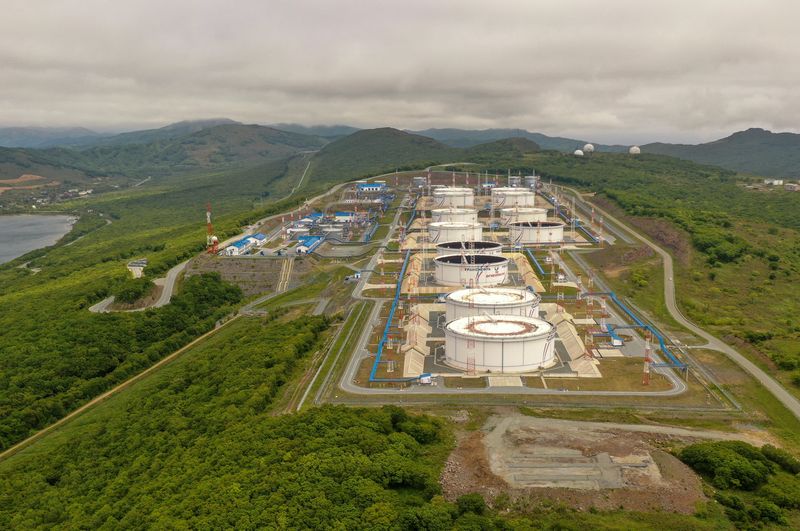By Rowena Edwards and Rod Nickel
LONDON (Reuters) - Oil prices swung higher in volatile trading on Monday, as traders focused on tight supplies over slowing global economic growth.
Brent crude futures settled up $1.01, or 0.9%, at $114.13 a barrel. The global benchmark tumbled 7.3% last week for its first weekly fall in five.
U.S. West Texas Intermediate crude last traded up 61 cents, or 0.56%, at $110.17 in subdued trade on the Juneteenth U.S. holiday. Front-month prices slumped 9.2% last week for the first decline in eight weeks.
"We've got two really competing narratives happening," said Houston oil consultant Andrew Lipow. "One is sanctions on Russian supplies (supporting prices). On the other hand, we see the high prices resulting in some demand destruction."
Brent prices on Monday touched their lowest in a month before recovering.
"Supplies will remain tight and continue supporting high oil prices. The norm for ICE (NYSE:ICE) Brent is still around the $120-mark," said PVM analyst Stephen Brennock.
"The bullish case remains far more convincing," said Craig Erlam, senior market analyst at OANDA.
Western sanctions have reduced access to oil from Russia after its invasion of Ukraine, which Russia calls a "special operation."
Analysts and investors said they believe a recession is more likely after the U.S. Federal Reserve approved on Wednesday the largest interest rate increase in more than a quarter of a century to contain a surge in inflation.
Similar tightening approaches by the Bank of England and Swiss National Bank last week ensued.
"Friday’s steep price fall can be seen as a delayed reaction to the concerns about recession that have already been weighing on the prices of other commodities for some time," said Commerzbank (ETR:CBKG) analyst Carsten Fritsch.
While China's crude oil imports from Russia in May soared 55% from a year earlier to a record high, displacing Saudi Arabia as the top supplier, China's export quotas have resulted in declining oil product shipments.
Tight refined products markets have supported oil prices.
Analysts expect limited summer increases from the Organization of the Petroleum Exporting Countries and its allies, a group known collectively as OPEC+.
Libya's oil production has remained volatile following blockades by groups in the country's east, with its output most recently pegged at 700,000 per day.

Meanwhile, prospects are dwindling for Iranian sanctions relief that could result in a meaningful increase in the country's crude exports.
There has been some mitigation for tight supply with the release of strategic petroleum reserves, led by the United States. Weekly crude output in the United States, the world's top producer, has also returned to pre-pandemic levels as the rig count slowly grows.